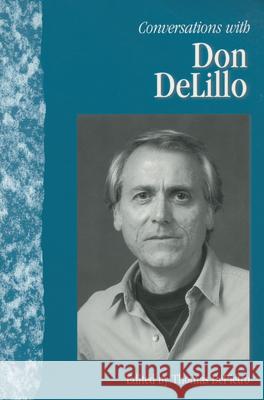Conversations with Don DeLillo » książka
Conversations with Don DeLillo
ISBN-13: 9781578067039 / Angielski / Twarda / 2005 / 183 str.
In novel after award-winning novel, Don DeLillo (b. 1936) exhibits his deep distrust of language and the way it can conceal as much as it reveals. Not surprisingly, DeLillo treats interviews with the same care and caution. For years, he shunned them altogether. As his fiction grew in popularity, especially with White Noise, and he began to confront the historical record of our times in books such as Libra, DeLillo felt compelled to make himself available to his readers. Despite claims by interviewers about his elusiveness, he now hides in plain sight. In Conversations with Don DeLillo, the renowned author makes clear his distinctions between historical fact and his own creative leaps, especially in his masterwork, Underworld. There it seems the true events are unbelievable and imaginary ones not. Throughout long profiles and conversations-ranging from 1982 to 2001 and published in the New Yorker, the Paris Review, and Rolling Stone-DeLillo parries personal inquiries. He counters with the details of his work habits, his understanding of the novelist's role in the world, and his sense of our media-saturated culture. A number of interviews detail DeLillo's less-heralded work in the theater, from The Day Room to a recent production of Valparaiso, itself a stinging satire on the interviewing process. DeLillo also finds time to comment on his nonliterary passions, primarily the movies and baseball. Lee Harvey Oswald also inspires much extraliterary discussion, not just as the subject of Libra, but as a figure who, like the terrorists always lurking in DeLillo's fictions, captures our attention in ways novelists cannot. For DeLillo, a writer who eschews celebrity, the ultimate response might be the one he offered in his very first interview, paraphrasing Joyce: -Silence, exile, cunning, and so on. It's my nature to keep quiet about most things.- Fortunately for his many readers and fans, he proves himself here to be a talker.











